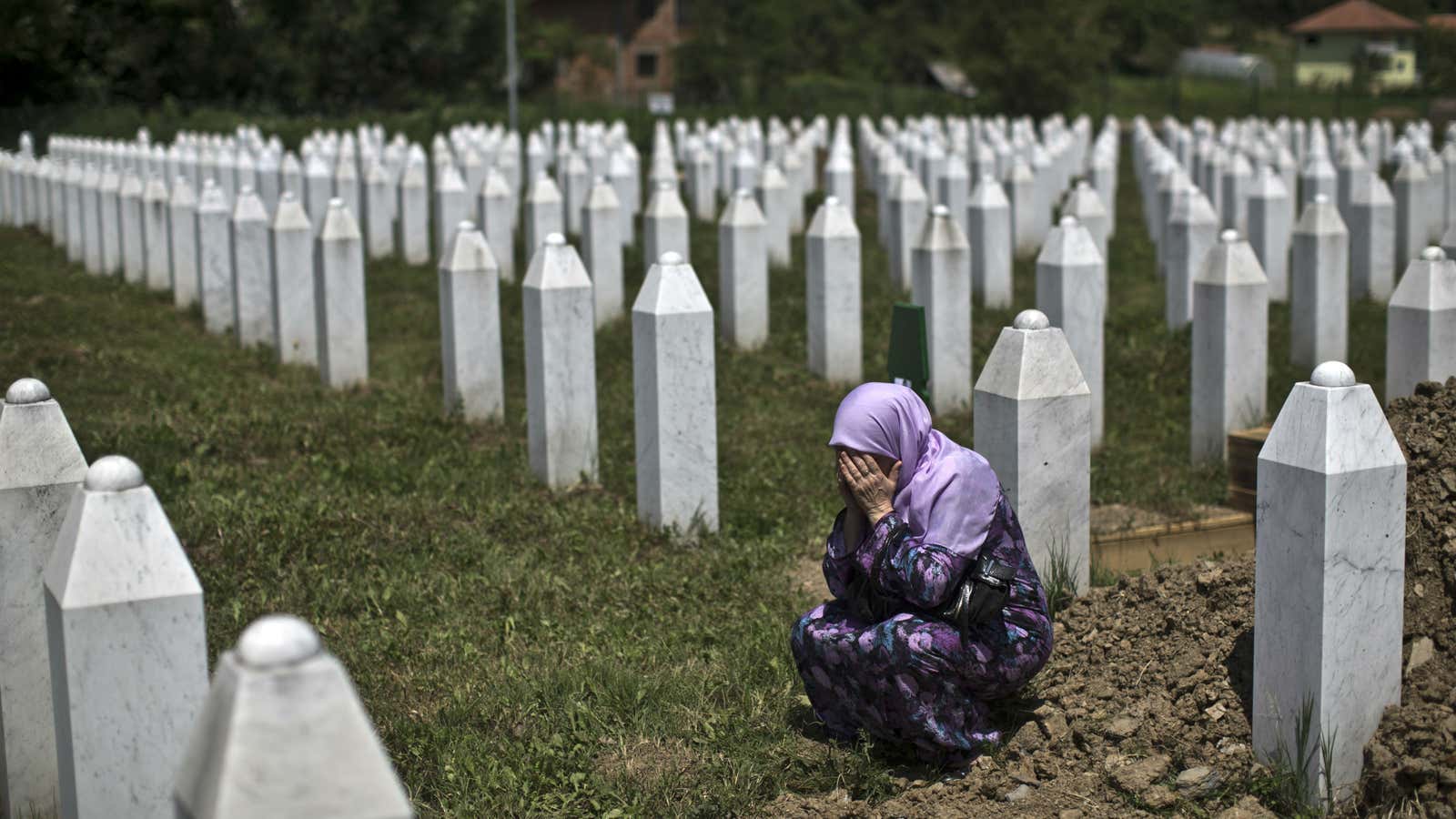On July 11, 1995, during the Balkan war, the ”worst crime on European soil since World War II” occurred in Srebrenica, Bosnia. Over 8,000 Muslim Bosniaks, mainly men and boys, were killed by the Bosnian Serb Army, under the command of Ratko Mladić—a military leader whose ominous crimes during the Balkan war gained him the nickname of “Butcher of Bosnia.”
As of July 11, 2015, the 20th anniversary of the massacre, there has yet to be an official UN resolution calling what happened a “genocide.” The massacre was recognized as such by the International Court of Justice in 2007 and has been unofficially referred to in this way at the UN, in former secretary general Kofi Annan’s reports on the events. But a resolution that would have officially called the massacre a “crime of genocide” was vetoed by Russia (an ally of Serbia’s) on July 7.
As was the case with Armenia a few months ago, decades (a century, in Armenia’s case) after genocide was committed and witnessed internationally, the international community struggles to call the event a “genocide.” As Joshua Keating noted in Slate, genocide is one of the terms—alongside torture and coup—that is particularly hard to pronounce in an official setting, as it intrinsically carries a strong accusation toward the perpetrators of the crime.
According to the 1948 Convention on the Prevention and Punishment of Genocide, adopted by the UN, a killing has to be conducted with the intention of destroying a specific group of people to be labeled a genocide; Russia claims this would be a politically charged representation of the events of Srebrenica.
Mladić, whose trial for war crimes began in The Hague in 2012, has so far shown no remorse for his actions. He enjoys a disturbing level of popularity among Serbian nationalists, who contested his arrest in 2011, calling him a “freedom fighter” who “defended his own nation, defended his people.”
International delegations will be present in Srebrenica to mark the anniversary, including an American contingent led by former president Bill Clinton. About 50,000 people are expected to attend the memorial events, which will include a funeral for as many as 136 victims whose remains were unearthed on July 9 (new corpses or remains are still being found in the area). Rallies to remember the massacre have been forbidden in Serbia—although the country’s prime minister will attend the event in Srebrenica.
On the 10th anniversary of the massacre, in 2005, then UN Secretary-General Annan wasn’t shy in pointing out the responsibilities of the international community in the tragedy, declaring:
We can say—and it is true—that great nations failed to respond adequately. …
… As I wrote in my report in 1999, we made serious errors of judgement, rooted in a philosophy of impartiality and non-violence which, however admirable, was unsuited to the conflict in Bosnia. That is why, as I also wrote, “the tragedy of Srebrenica will haunt our history forever”.
